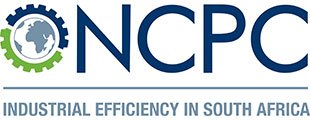

Relevance of resource efficiency in #buildingbackbetter
Lee-Hendor Ruiters emphasises the importance of preserving and ‘stretching’ resources as countries around the world emerge from the ravages of the Covid-19 pandemic
Memories of life in the time of Covid-19 will for a long time be etched into the minds of the world and the current and next generation. The pandemic has not only created a health crisis worldwide but also brought the economies of many countries to their knees.
In his column addressing the nation on August 24, President Cyril Ramaphosa emphasised that the road to economic recovery post-Covid-19 has to be focused on establishing an economy that is ‘climate-change resilient’ to create sustainable industries, employment, food security, inclusivity and growth.
Needless to say, the impact of Covid-19 on South Africa has amplified the very real systemic sociopolitical challenges that the country faces. However, there is another side to this grim picture.
During the lockdown period, when there was limited movement and economic activity, an abundance of creativity, entrepreneurship and social outreach to those in need showed the tenacity and resilience of South Africans. This brought renewed appreciation of what we have and what we can do with what we have, despite the limitations and challenges our country faces. It showed us how important and powerful the collective effort is in terms of preserving and ‘stretching’ the resources that we have at our disposal. This nationwide team effort was a requirement in everything that we did.
Team Effort to ‘Build Back Better’
And such it must be when building the climate-resilient, socially sustainable society as we “build back better”. This may sound philosophical, or possibly a policy issue, far beyond the reach of everyday professionals. But each company can make a contribution to this maximising of resources, and in the process benefit its own operations. It is as simple as resource efficiency and cleaner production (RECP).
RECP is a set of often technical and industrially focused methodologies, but the concept also embodies the principle of teamwork in order to achieve ‘more with less’.
When you look at what we at the National Cleaner Production Centre (NCPC-SA) have been doing for the past 15 years, I believe that, while other industries and organisations may see diminished relevance post-Covid-19, ours has increased. The focus on doing more with what you have immediately becomes a concept that everyone is confronted with and, being in the business of advocating resource efficiency in South Africa, this is familiar territory for the NCPC-SA.
Since the inception of the centre at the World Summit on Sustainable Development, in September 2002, the mandate has not changed much – to lower the costs of industry through RECP methodologies. However, executing this mandate has changed dramatically over the years – from an awareness-raising approach to implementing internally recognised programmes focusing on energy efficiency, material and waste efficiency, water efficiency, life-cycle management and eco- industrial parks.
The potential to save resources and related costs through operational improvements is evident in the NCPC-SA’s results. In the past five years, the centre has assessed 739 company sites of all sizes, from massive steelworks to bed-and-breakfast facilities. Identified RECP opportunities during this period are valued at an average of R1.9-million per company every year. This is mostly in energy, but water and material savings also feature strongly.
Sadly, the majority of companies do not implement most opportunities, for many reasons. But when they do, the results are a testament to what can be achieved with a collective effort. Last year, one company in the Western Cape, supported by the NCPC-SA, measured water savings of 60.44-million litres over 16 months. That is the water consumption target for the entire City of Cape Town for one week. The impact of hundreds of companies doing likewise will be enormous.
Different Way of Thinking
The technical focus of resource efficiency should be underpinned by an understanding of why we are doing this, against the backdrop of climate change imperatives. To this end, the NCPC-SA has since 2014 been broadly advocating the use of life-cycle management practices in industry. Using life-cycle thinking as a starting point helps companies to understand how their choices impact on each of the stages of the life cycle of a product or service: from raw material acquisition to manufacture, distribution, product use and disposal. Although this is not a new practice, it is not a common practice among manufacturers. It does, however, create the first step towards making resource efficiency meaningful and targeted, but also highlights the much-needed focus on low-carbon and resilient business practices and models in a changing local and global economy.
In keeping with the President’s remarks about building a new economy in line with climate change response and international moves towards green growth and a circular economy, there is no time like the present to tap into what is already on offer through the NCPC-SA.
Ruiters is the regional manager responsible for the Western, Eastern and Northern Cape at the NCPC-SA. Ruiters specialises in sustainable development, eco-innovation and life-cycle management and heads up large projects at the centre, including the Eco Industrial Parks Programme in partnership with the United Nations Industrial Development Organisation and the Department of Trade, Industry and Competition. He has been at the NCPC-SA for ten years, before which he worked for the Council for Scientific and Industrial Research in enterprise development. He is currently completing a master’s degree in inclusive innovation at the University of Cape Town Graduate School of Business and is a Bertha Centre Scholar




